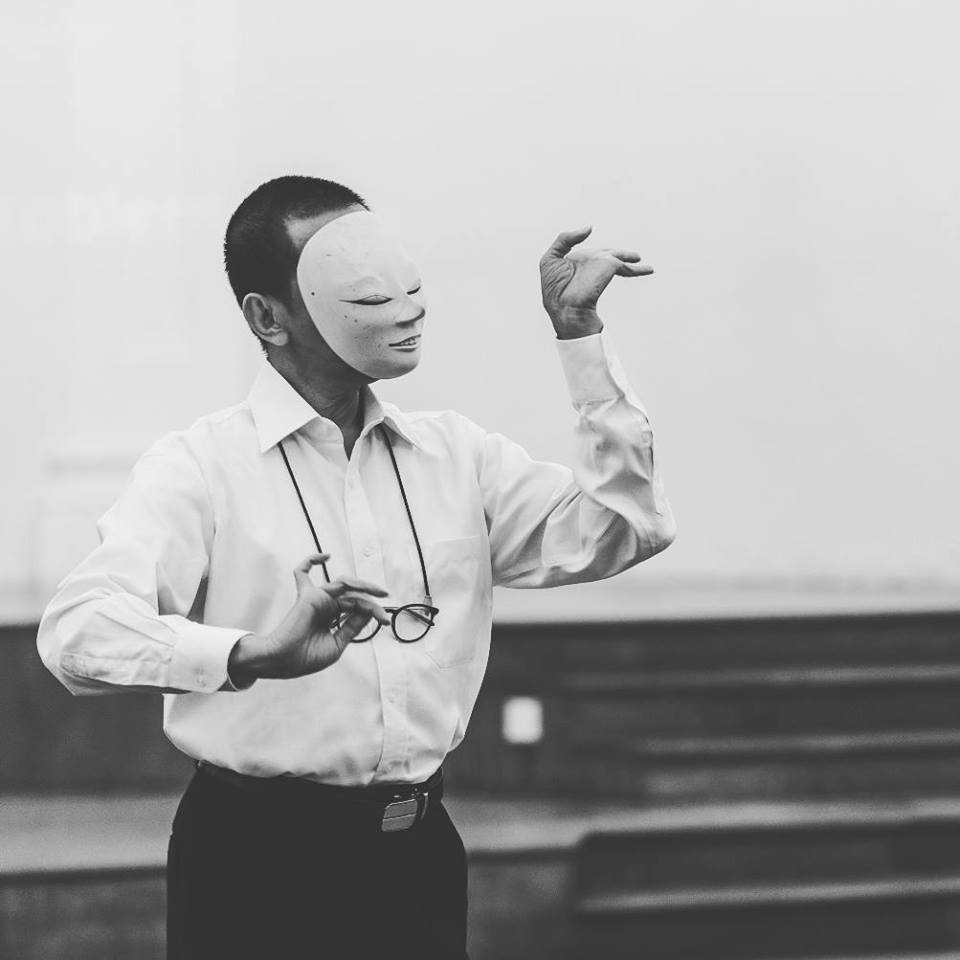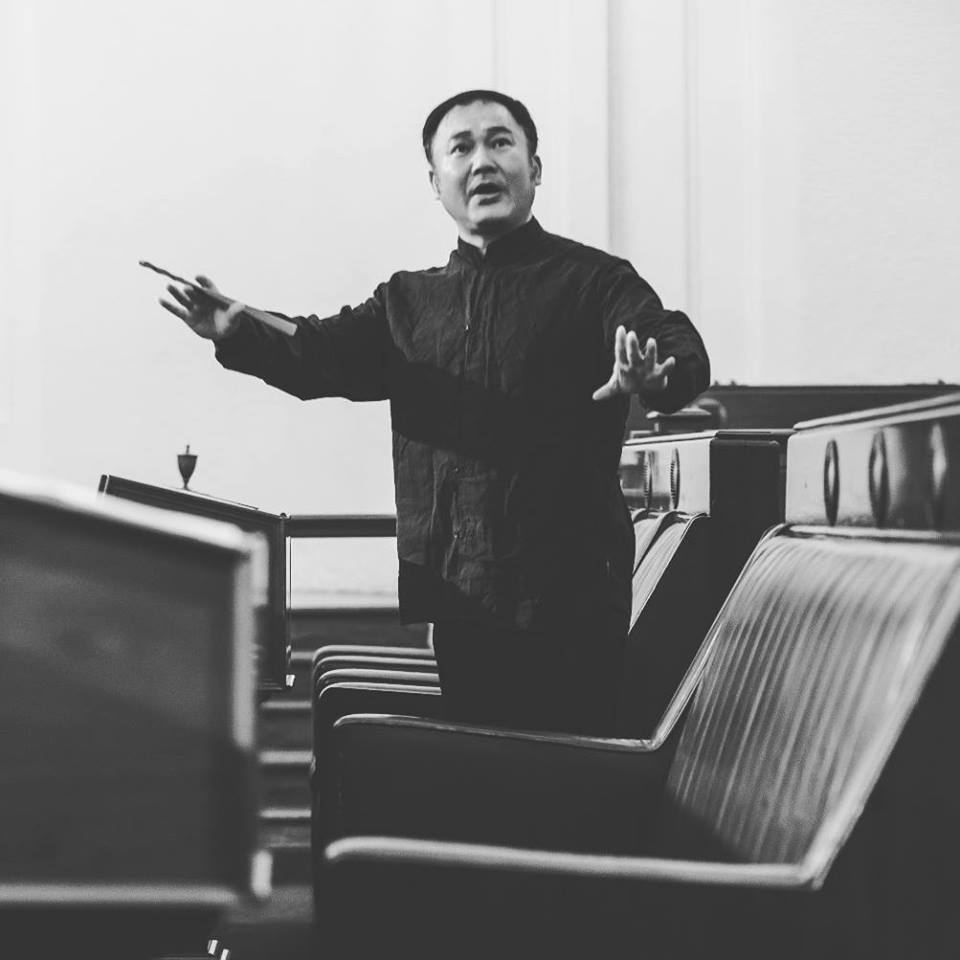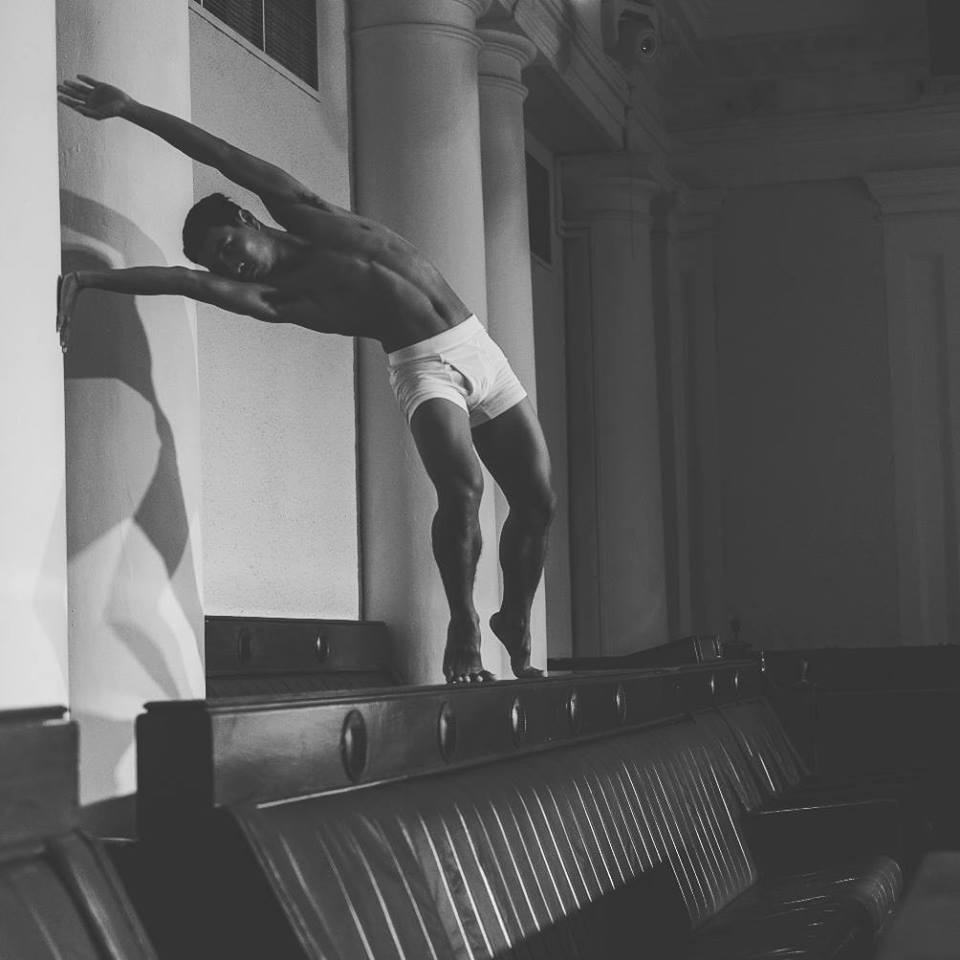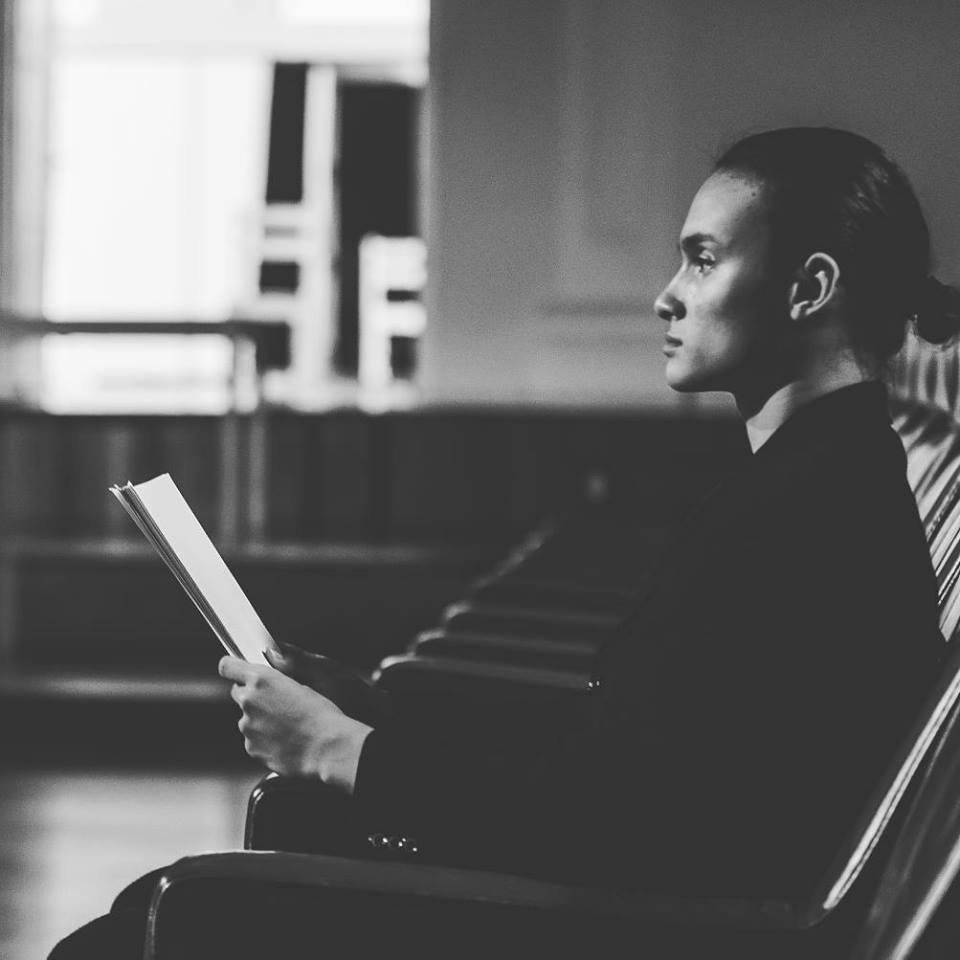The production opens with Xiaoyi's piece, a meeting between Javanese dancer, choreographer and mask performer Didik Nini Thowok (Indonesia) and Kunqu master Wang Bin (China). Stripped of their traditional attire, they're suited and briefcased instead – my mind wandered briefly to the idea of Japanese salarymen trapped in a parliamentary setting – drifting through the rows of seats with a fragment of a beautiful gesture or movement from their own art forms. Behind them, projected over the double doors leading out of the chamber, are broad statements in English and Chinese about decision-making. (I didn't take notes because I was watching this show for pleasure, so I hope I remembered this right.) This begins with choice, and free will:
"To become an artist was my own choice."
"To become a cultural leader was my own choice."
"To become a eunuch was my own choice."
And so on, with other roles. This decision-making eventually leads to questions of fault, responsibility, and burden:
"To cross the border was your own problem."
"To become an artist was your own problem."
I couldn't help thinking of these statements as part of a parliamentary debate, where a piece of legislation can be construed in one way by its proponents and in another by its opponents. Did we choose to view the artist as troublemaker and rabblerouser, or were we coerced into seeing the artist that way? Did the cultural leaders we admire choose the path, or did they wrestle with reluctant moral obligation to play the part – and does it matter?
Didik Nini Thowok eventually removes a mask from his briefcase and puts it on, drawing on the archetype of politician as masked trickster; later, the two of them laugh and converse in their individual languages with the help of some charades (I catch, from my meagre understanding of Bahasa Indonesia, something to do with makan, eating). It's a callback to the themes from the late Kuo Pao Kun's Descendants of the Eunuch Admiral, where the Admiral Cheng Ho embarks on a journey of personal and cultural discovery, and Kuo's multilingual work such as Mama Looking for her Cat where characters also converse across languages, unsubtitled. In this case, the meeting of cultures moves beyond the Singaporean context to a larger Asian one, but I wasn't quite convinced by the marriage of images and text. Xiaoyi's construction of associative relationships between image and text has had some rich, delightful results – as was the case with one of his previous productions, Fluid (2014). But in this case the text didn't feel quite as resonant beyond a clever bait and switch ("choice"/"problem"), and the extended riff felt tangential rather than integral to the performances of the two master traditional artists – and vice versa.
The subsequent performance directed by Makoto Sato felt even more unsubtle in its overtures to interculturality. Sato-san's piece involves Wang Bin and Xiaoyi as torchbearers of two generations of performance, one traditional (kunqu) and one avant garde (experimental theatre). In showcasing two markedly different forms and cultures thrown together in the same environment, and relying solely on the friction produced from their widely differing physical vocabularies rubbing up against each other, the novelty of the juxtaposition quickly runs its course and the audience is left to contend with large swathes of stasis when all the symbolism from the encounter has been fully read. Because the piece is relatively brief, this intercultural commentary feels even shallower. A recorded voiceover in Mandarin Chinese is played over their performance in a strict binary:
"I am Liu Xiaoyi."
"I am Wang Bin."
"I am not Liu Xiaoyi."
"I am not Wang Bin."
"Do you know Emperor Yongle?"
"Do you know Emperor Jianwen?"
Some historical context might be useful for this cultural reference; Ming dynasty emperor Yongle, desirous of the throne, overthrew his nephew, the Jianwen emperor, at the turn of the 15th century on the pretext that he was executing powerful rivals. There is an obvious analogy for artistic succession here, whether by revolt or by hereditary decree, and in one particularly heated scene both performers attempt to drown each other out – Xiaoyi convulsing, shrieking and laughing; Wang Bin belting out an operatic solo at the top of his lungs.











